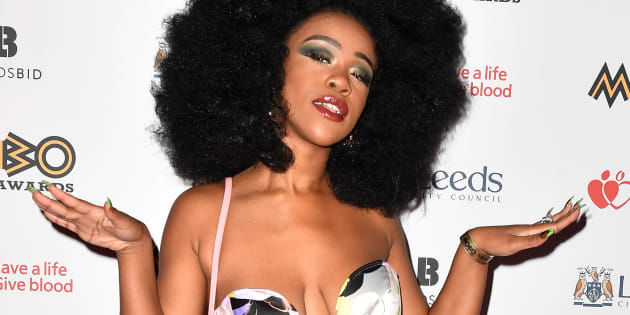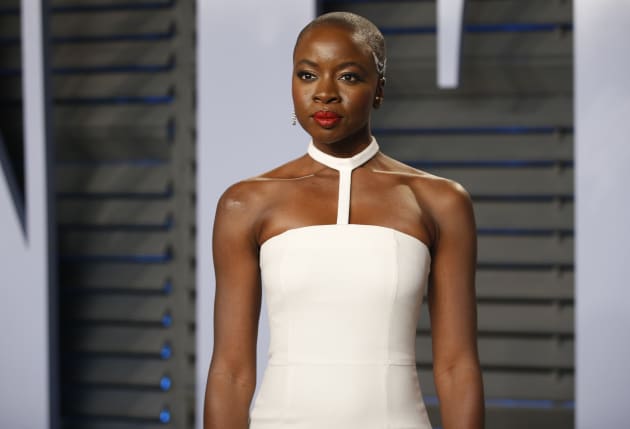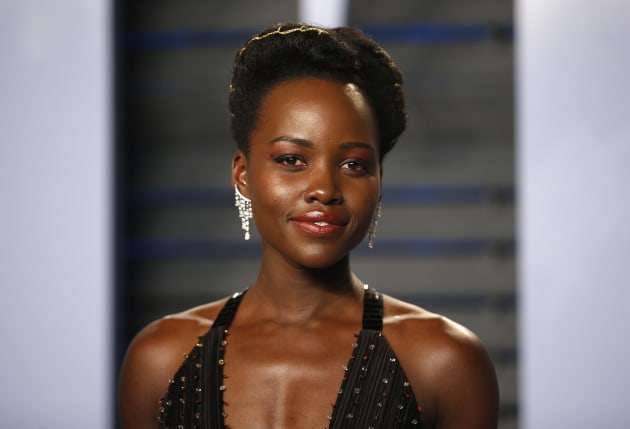
The #SaggyBoobsMatter creator and advocate is speaking out again — and she has even more wise words on body image and self-love. Chidera Eggerue, also known as The Slumflower on Instagram, launched the body positive movement to increase the representation of women with saggy breasts. In a new interview with Indy 100, Eggerue touches on anti-blackness and eurocentric standards.
"When it comes to beauty standards in the West, I do feel like it's very eurocentric — and I don't think it will change for a while," Eggerue told Indy100.
"These beauty standards definitely feed into the black community and create internalized anti-blackness — which is essentially when black people hold ideas that the darker you are the worst you are. It's colourism. This internalized anti-blackness changes the way we view black women," Eggerue continued.
Internalized anti-blackness, coupled with colourism, stems from lack of proper, if any, representation of blackness in the media, places of employment, places of political power, and even in restaurants.
It also fuels personal bias when it comes to who people find attractive.
A 2015 Kent University study, led by Dr. Chris Solomon, an expert in facial mapping, used software to determine the most attractive women and men in the U.K., The Daily Mail reported. The two-month project used the same artificial intelligence software that British police use for eyewitnesses to show an "accurate" and "realistic" image of wanted criminals.
The results of the study showed that people in the U.K. saw white perceptions of beauty as the standard for attractiveness, with models Kendall Jenner and David Gandy bearing a close resemblance to the attractive "e-fits."
I only entertain men when I'm bored of my own greatness.
A post shared by Chidera (@theslumflower) on
This beauty standard can also be seen in Canada. A 2014 University of Toronto study found an intrinsic bias for whiteness in Canadian television commercials. Researchers noted that 87 per cent of people in commercials were white, despite the Canadian population being 80 per cent white, according to the 2006 census, The Globe and Mail reported.
When people of colour were in Canadian commercials, researchers noted their roles were stereotypes and limited in scope, compared to the unlimited number of roles and "frequent depictions of privilege" afforded to white characters.
So due to internalized anti-blackness, the natural Afro is seen as a transitional state, as opposed to an intentional presentation.
— THE SLUMFLOWER (@theslumflower) October 31, 2017
Colourism occurs when light-skinned black individuals attain more privilege due to their close proximity to whiteness. Given the double bias black women face being black and women, Eggerue noted black women, especially dark-skinned black women, struggle with self-love every day — a struggle "Black Panther's" Danai Gurira spoke about this month at Essence magazine's Black Women In Hollywood event.

Gurira began her speech by describing the first time she was told she was beautiful at nine years old when she walked in a fashion show in Zimbabwe for American visitors.
"When it happened, I remember being surprised by it. I had never thought about it. But when I did receive that compliment — a stunning brown-skinned woman took my face in her hands, her long flowing braids cascading behind her back — I realized it was something I would always cherish ... She told me I was beautiful," she said, adding that that moment "left an indelible imprint" on her.

Actress and Oscar winner Lupita Nyong'o echoed a similar sentiment for Essence magazine's Black Women In Hollywood event in 2014. "I remember a time where I too felt unbeautiful. I put on the TV and only saw pale skin. I got teased and taunted about my night-shaded skin. My one prayer to God, the miracle worker, was that I would wake up lighter skinned," she said.
Also on HuffPost:
